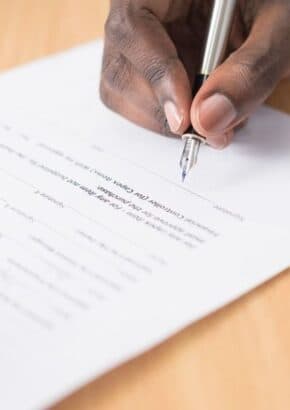There are various legal documents you need to start a trust. However, creating a trust is not always a simple task. Before beginning this process, you need to consider several issues. If you are considering setting up a trust, this article will outline:
- what a trust is;
- why you may wish to start a trust;
- who the parties to a trust are; and
- what legal documents you need to start a trust.
What is a Trust?
A trust is a separate legal entity. You can transfer your personal property and assets to a trust, and it will be the legal owner of the property. The trust then keeps the property for the benefit of other people of your choice, usually for:
- family;
- children; or
- a charitable purpose.
You can also set up a trust for your own benefit.
Why Would I Create a Trust?
Trusts serve a unique role. One of their functions is to keep property safe and separate. If you feel your assets may be at risk, you can move them into a trust. That way, you are not the owner of these assets, the trust is. Therefore, if you run a business, liquidators cannot use these assets to pay off business debts.
Additionally, you can use a trust to set money aside for special reasons. For instance, you could set aside money to fund a scholarship or to pay for your grandchild’s education.
Continue reading this article below the formParties to the Trust
Before you start creating documents for your trust, there are a few parties that you will need to identify. These essential elements for a trust will appear in almost all trust documentation.
1. Trustees
Your trust will need to have at least one trustee. The trustee is the guardian of the trust. They deal with trust property on behalf of the beneficiaries and distribute it to them. Additionally, they are responsible for reporting on the trust and ensuring it remains compliant with trust law.
Notably, trustees have substantial obligations to act in the best interests of the beneficiaries. Because of these obligations, some trustees are professionals, like lawyers or accountants with significant experience managing trusts.
2. Settlor
All trusts need to hold some property. This property can take many forms, including:
- land;
- stocks;
- shares; or
- money.
As the property’s original owner, the settlor puts the property in the trust.
3. Beneficiaries
You must set aside a specified group to receive the property from the trust. Typically, these are family members, but they can also be a charity or individuals who receive a scholarship from the trust. You need to name beneficiaries explicitly, and you cannot refer to them as a general group.
What Documents Do I Need to Create a Trust?
Trust Deed
Generally, you lay out all of the formalities of the trust in a trust deed. The trust deed is a vital document for any trust, and it is a binding legal document. It specifies important trust information, including the identities of the:
- beneficiaries;
- trustees; and
- settlors.
Additionally, it sets out these parties’ responsibilities, as well as the nature of the trust property.
Generally, the trust deed should be as specific as possible, as trusts can get quite complex. You do not want to leave a grey area where people may make mistakes with the property. This fact is especially true if you want your trust to achieve something specific, such as paying for a person’s education.
Memorandum of Guidance
A memorandum of guidance is very similar to a trust deed. However, it serves a slightly different purpose. Trusts typically last an extended period and may go through several different trustees, or the original settlor may pass away. Therefore, it can be beneficial to have a separate document to guide trustees to the original intentions of the trust. While a trust deed sets out specific rules for the operation of the trust, a memorandum of guidance is more of a personal note from the settlor.

To protect your business, ensure supplier contracts meet your business’ needs. Our free Commercial Contracts Checklist will help.
Key Takeaways
There is much to consider when you create a trust. You should understand all parties you wish to have involved with your trust and its overall purpose. You should clearly outline these in the trust deed and memorandum of guidance. Clear trust documents are vital to ensure the smooth running of a trust.
If you need help creating legal documents to start a trust, our experienced business lawyers can assist as part of our LegalVision membership. For a low monthly fee, you will have unlimited access to lawyers to answer your questions and draft and review your documents. Call us today on 0800 005 570 or visit our membership page.
Frequently Asked Questions
Yes, you should be very specific about who you wish to benefit from your trust. Make sure to name people individually.
Yes, a trust deed is an essential document for a trust. They are legally binding documents.
We appreciate your feedback – your submission has been successfully received.












